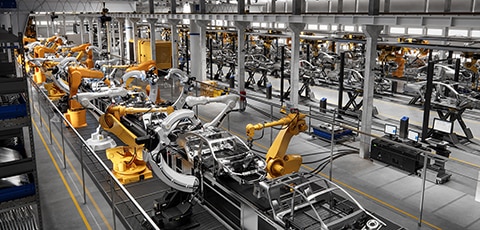
Weekly Financial Trends and Insights
Every week in our Key Wealth Institute emails, we dive into trending topics and their potential impacts to investors to deliver timely insights and advice from our in-house experts. Here, you’ll find all of our Key Questions in one place, so you always have access to the latest market information.

In times of macroeconomic uncertainty, both equity and fixed income investors look to the credit markets for indications of economic deterioration and company distress. As of this writing (April 7, 2025), both equity and credit markets have continued their sell-offs associated with President Trump’s April 2nd tariffs policies.

Wednesday, April 2, 2025, US President Donald Trump announced new tariffs far greater and far broader than anticipated. As a result, and in brief, the impact associated with the president’s new trade policies may potentially cause short-term inflation to rise, economic growth to slow, recession risks to increase, and the geopolitical environment to be altered, possibly for decades to come.

Technology has become an increasingly dominant force in US stock markets – and thus in many investors’ portfolios. Over the past 15 years, tech companies have delivered standout growth and returns, causing broad market indices to tilt heavily toward the tech sector.

Within Key Wealth, we design customized portfolio solutions comprised of high-quality, US publicly traded securities, principally stocks and bonds managed by my colleagues led by Steve Hoedt (equities) and Rajeev Sharma (fixed income). To complement these holdings, we utilize a wide array of investment vehicles spanning the full spectrum of asset classes. Moreover, our investment platform is completely “open architecture," meaning it consists of options solely selected based on our clients’ best interests.

In the nearly 16 years since the S&P 500 bottomed in the wake of the Global Financial Crisis (in March 2009), technology stocks have vastly outperformed the broader stock market, returning an annualized +20.9% vs. +16.3% for the S&P 500 (as of 1/31/25), and as result, these stocks now represent sizeable allocations within many portfolios.

Earnings reporting season for the recently ended quarter is nearly complete, and between the flood of activity from the new administration and the emergence of a potential breakthrough moment in Artificial Intelligence (“AI”), it has been an extremely eventful one. We analyzed dozens of such reports and identified three “key themes” that best summarize the quarter.
The Key Wealth Institute is comprised of financial professionals representing KeyBank National Association (KeyBank) and certain affiliates, such as Key Investment Services LLC (KIS) and KeyCorp Insurance Agency USA Inc. (KIA).
Any opinions, projections, or recommendations contained herein are subject to change without notice, are those of the individual author(s), and may not necessarily represent the views of KeyBank or any of its subsidiaries or affiliates.
This material presented is for informational purposes only and is not intended to be an offer, recommendation, or solicitation to purchase or sell any security or product or to employ a specific investment or tax planning strategy.
KeyBank, nor its subsidiaries or affiliates, represent, warrant or guarantee that this material is accurate, complete or suitable for any purpose or any investor and it should not be used as a basis for investment or tax planning decisions. It is not to be relied upon or used in substitution for the exercise of independent judgment. It should not be construed as individual tax, legal or financial advice.
The summaries, prices, quotes and/or statistics contained herein have been obtained from sources believed to be reliable but are not necessarily complete and cannot be guaranteed. They are provided for informational purposes only and are not intended to replace any confirmations or statements. Past performance does not guarantee future results.
Investment products, brokerage and investment advisory services are offered through KIS, member FINRA/SIPC and SEC-registered investment advisor. Insurance products are offered through KIA. Insurance products offered through KIA are underwritten by and the obligation of insurance companies that are not affiliated with KeyBank.
Non-Deposit products are: